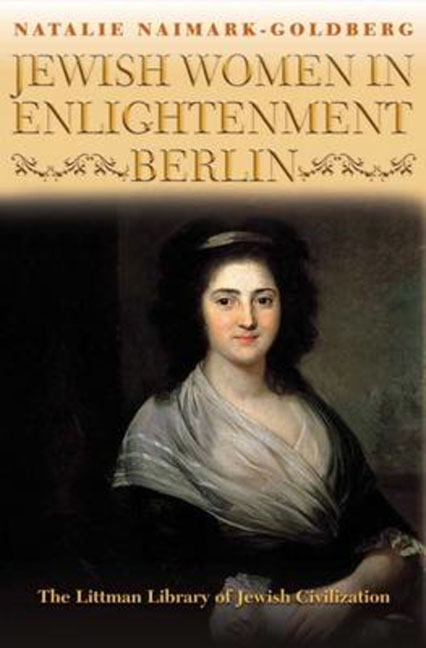Book contents
- Frontmatter
- Dedication
- Acknowledgements
- Contents
- List of Illustrations
- Note on the Translation of Sources and the Use of Names
- Note on Transliteration
- Introduction
- 1 Private Letters: An Alternative Sphere for Cultural Discourse
- 2 Jewish Women and the Reading Public
- 3 Going Public: Jewish Women in the Field of Literature and Publishing
- 4 Sociability and Acculturation in German Spas
- 5 Social Gatherings in Private Homes
- 6 Female Emancipation
- 7 Between Acculturation and Conversion
- 8 Conclusion
- Bibliography
- Index
3 - Going Public: Jewish Women in the Field of Literature and Publishing
- Frontmatter
- Dedication
- Acknowledgements
- Contents
- List of Illustrations
- Note on the Translation of Sources and the Use of Names
- Note on Transliteration
- Introduction
- 1 Private Letters: An Alternative Sphere for Cultural Discourse
- 2 Jewish Women and the Reading Public
- 3 Going Public: Jewish Women in the Field of Literature and Publishing
- 4 Sociability and Acculturation in German Spas
- 5 Social Gatherings in Private Homes
- 6 Female Emancipation
- 7 Between Acculturation and Conversion
- 8 Conclusion
- Bibliography
- Index
Summary
THE TWO PRECEDING CHAPTERS on letter-writing and reading have emphasized the active participation of enlightened Jewish women around 1800 in the field of literature as enthusiastic though critical readers of contemporary literary products. Their involvement with literature, however, was not confined to their consumption of written texts: it also included the process of creation, as authors of their own works. This chapter examines the literary activity of some of these women, discussing their attitudes towards authorship and what the crucial decision to publish their writings meant in the context of their time.
As female authors, these Jewish women of letters were part of a broader phenomenon in contemporary Europe. Throughout the eighteenth century and especially towards its end, a female writing culture was developing simultaneously in various lands. Although the pace and nature of this literary expansion differed from place to place, depending on specific local conditions, countries including Germany, France, and England all saw a dramatic increase in the number of women active in the field of literature—parallel, to be sure, to an analogous proliferation of male authors. Writing retrospectively, the author and feminist thinker Virginia Woolf noted and highlighted the entrance of women into the world of letters at that time, which she perceived as a momentous event of far-reaching consequences for modern human history. ‘Towards the end of the eighteenth century’, she wrote, ‘a change came about which, if I were rewriting history, I should describe more fully and think of greater importance than the Crusades or the Wars of the Roses. The middle-class woman began to write.’ Although Woolf was referring to the English context, her claim regarding women's growing participation in the book market is valid for other places in Europe as well. In Germany, too, women joined the ranks of writers in ever-growing numbers with their varied products, experimenting with different cultural and literary trends and adopting new themes and techniques.
For a long time this increased literary activity of women around 1800, like much of women's literary contribution in the past, remained largely hidden. Excluded from the literary canon dominated by a male hegemony, works by women authors in general were consistently forgotten by the reading public and by scholars at large. It is only in recent decades that many neglected women writers have been rediscovered and their works reprinted and subjected to new interpretations.
- Type
- Chapter
- Information
- Jewish Women in Enlightenment Berlin , pp. 102 - 145Publisher: Liverpool University PressPrint publication year: 2013



